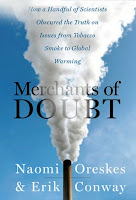A century ago, a parent company of PGE engaged in a promotional campaign for coke.
 |
| A series promoting coke, Nov 20th, 1920 |
Others still touted coal.
 |
| Coal still popular, and carts still used, Nov 21st, 1920 |
Salemites then were not bashful at all about burning wood, coal, or coke.
We are today bashful in talking about fossil fuels, and that needs to stop. We burn them, but we don't talk enough about burning them and about burning less of them.
The City's finally published the slide deck for the November 18th Climate Task Force Workshop.
 |
| The November Task Force Workshop |
There is nothing on it about decarbonizing or carbon pollution. Nothing about the fossil fuel sources of our pollution and reducing our use of them.
Instead, it's all about a vision for Making Salem More Wonderful. Or something. It's like it's shaped by a kind of denialism, "Climate change is happening, but we just aren't sure humans are causing it. It's probably just another natural cycle."
And if you believe that, then the frame of "resiliency" might be a very reasonable one.
But making this frame primary is also a page from the merchants of doubt approach to denying our climate emergency.
If we don't decarbonize, there will be much less to save in any kind of vision.
 |
| Avoiding the central matter |
And if we don't decarbonize, our efforts for resilience will just be digging a moat, raising the drawbridge, and closing the gate, preserving our pretty back yard at the expense of the commons and other public areas.
 |
| The inventory has been totally sidelined |
The point of a Climate Plan is to work locally on the global problem, to mobilize change at every level, not just to protect ourselves. At this point we should be looking at the location, flows, and usage of fossil fuels at every point in Salem society and economy. The analytical frame implied by the current process, with so much effort and time on visioning and vulnerabilities, is not adequate and takes too long to get to the analysis of fossil fuels in Salem. At this rate we will not have a serious plan for a 50% reduction by 2035.
 |
| Too much on hazards and not enough on emissions |
We can all do our part, and a Climate Plan needs to articulate this. War metaphors may not always be helpful, but mobilizing as if for war, on both micro and macro levels, is the scale we need.
 |
| World War II and saving gas - National Archives |
Addendum, December 1st
 |
| The resilience theme is on the front page |
 |
| Resilience is the name and first word in Lincoln's plan |
I should have just done some basic reading on the consultant, the Verdis Group. The theme and focus is right there, totally announced on their home page and the first word in the executive summary for the plan currently being drafted for Lincoln, Nebraska.
In their own case study promo for the Lincoln plan is also the "four pillar" template that we clearly see being use here.
 |
| The "four pillars" in the case study for Lincoln |
We also see an imaginary vision for Lincoln in 2050 in current draft of the Lincoln Plan.
 |
| "Imagine...it is August, 2050 in CITY, STATE" |
We are clearly getting a off-the-shelf, plan-by-template here.
It is perhaps significant that another case study is for the Minneapolis airport. Is it even possible to write a credible climate plan for an airport? Or is that merely a bunch of greenwash?
Interestingly, they offer consulting on waste reduction and recycling also, perhaps more comfortable with small, micro individual change rather than system change.
 |
| They offer four main services |
 |
| The start on transportation in the Lincoln plan |
Specifically on transportation, the plan is light on the actual details that are going to make these strategies happen. There is no weighing of importance, no assessment that one action might be much more effective than another, or any estimate of how much carbon each action will reduce. It's more slogan and aspiration than realistic plan for action.
By contrast, the plan for Vancouver, BC is considerably more specific with concrete policy actions, not the more vague strategies we see in this Lincoln plan.
So we may have the wrong consultant, also. They are clearly selling a service and work product, but is this what we actually need?
From here, the answer is, no, this is not what we need.



2 comments:
Thanks for this post. Let it be a shot across the bow of the Climate Action Plan Task Force to get serious. All this focus on "resilience" was seen in the initial plan for the CAP that came out of the City. It was why 350 Salem OR worked with Councilor Tom Andersen to have the Council set a goal in advance of the planning getting underway for emissions reduction to net zero by 2050, and to get halfway there by 2035. Now we just have to hold the Task Force's feet to the fire to come up with credible strategies to achieve the Council goals.
Added a bit on the consultant, their general approach, and a little on the plan they are writing for Lincoln, Nebraska. What they are doing there is very likely what we will get here, and it does not seem very compelling.
Post a Comment